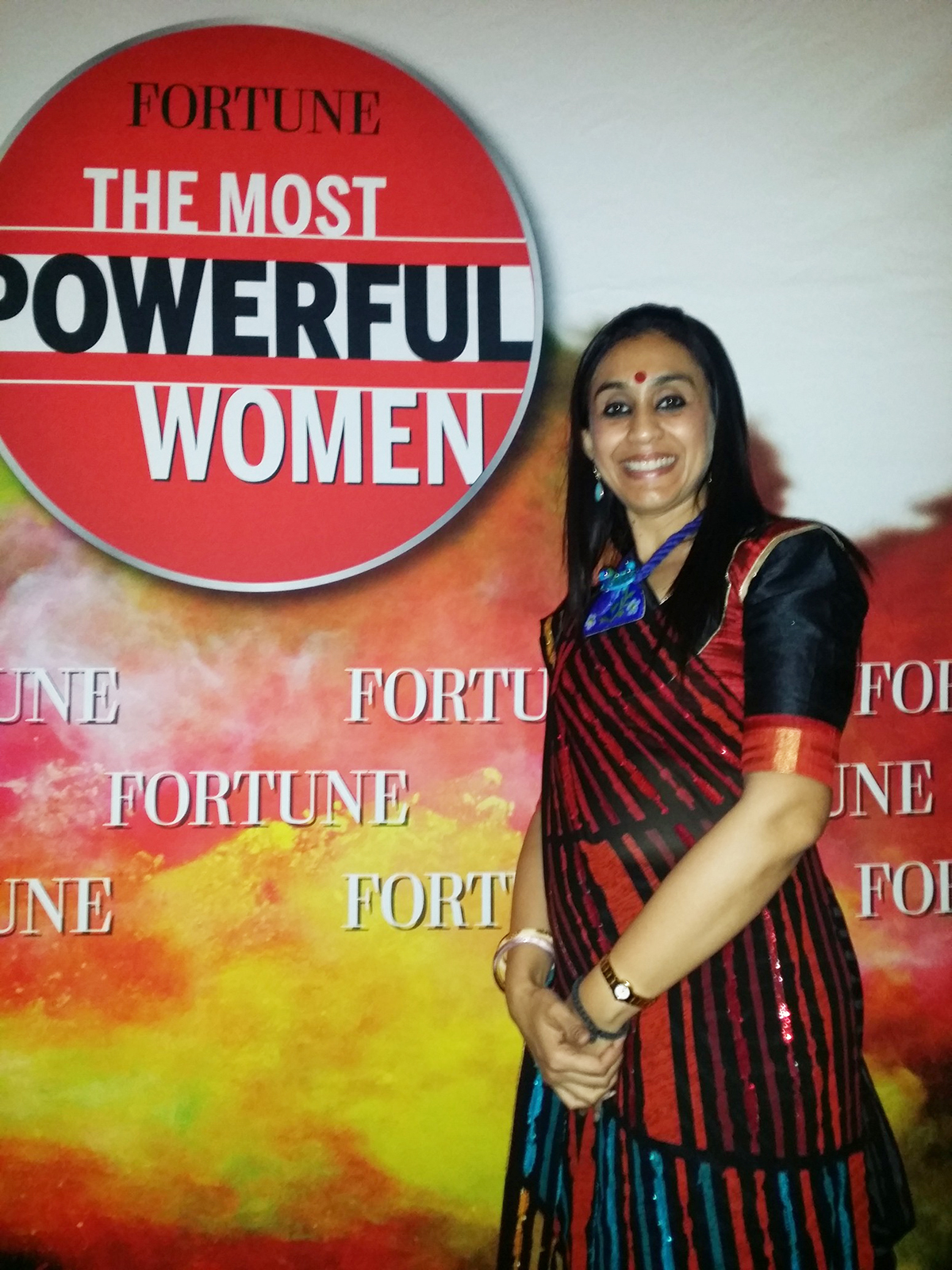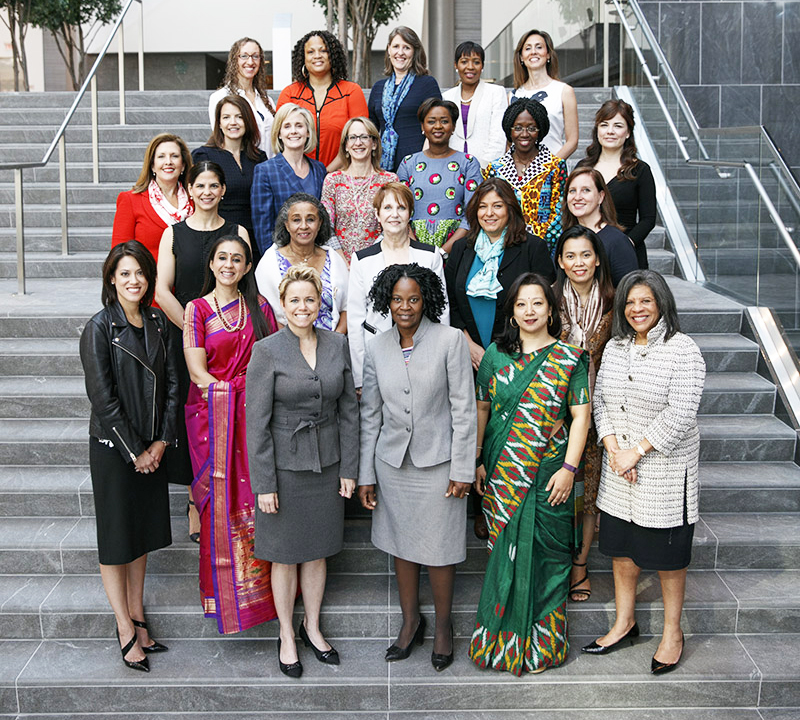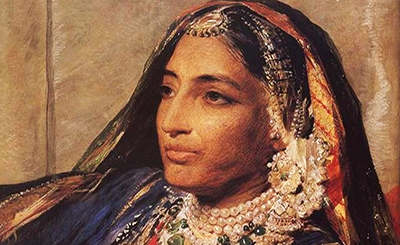
Apra Kuchhal, founder of We Care, an initiative to promote women, youth, art and culture. Photos: Apra
Women bring a different perspective to the whole concept of mentoring due to their unique aspirations and distinct obstacles. I was fortunate to experience the power of having women mentors who have invested in my learning
We are at the cusp of history. This is a defining moment for the world and especially for the women. I have always believed that we can take charge of our own destinies if we have the courage to demand and lead change.
I have been fortunate to meet with women who have had a formidable will to fight for the progress of their communities. For most of them it is an ongoing battle. These visionary leaders — young and old — have derived their strength from within. They have started the change at their local levels. I firmly believe that if one leads effectively and improves the condition of their surroundings, their city, their country they contribute to the betterment of their collective community, their world.
Mentoring is often not given importance in India as much as it is given abroad. Mentoring is important for both men and women. For women, it results more in community building. Women bring a different perspective to the whole concept of mentoring due to their unique aspirations and distinct obstacles. I was fortunate to experience the power of having women mentors who have invested in my learning. My mentors took out time for me, pushed me out of my comfort zone, answered my queries and encouraged me to travel that extra mile.
Even during these pandemic times, we have seen the importance of community building where many of us were stuck to our homes trying to maintain a sense of normalcy via technology.

My experiences with Women Mentors have been life-changing not only for me but for everyone around me.
As part of the Fortune/US State Dept Mentorship Program, I got a chance to be mentored by some very powerful women mentors who have left a long-lasting imprint on my life. Mentoring was a concept very less known to me. To my mind, there were mainly “men” who made successful mentors.
My first revelation during the mentoring program was that “we are not perfect and neither is the next person but each of us have something that we are good at and we need each other”. Most of the times our focus is on the things we are unable to do rather than the things we naturally excel at.
We measure the success in terms of masculine qualities but forget to celebrate our feminine leadership attributes. There is an inherent strength in every woman but usually it takes a devastating experience in her life to realize her power. My mentors shared important lessons to recognise my own power and the possibility of my own strength. They taught me not to hesitate to raise my voice and not to set my own limitations. Prior to my mentoring program, I had the habit to look for acknowledgement and appreciation in people’s eyes. Once I received it, I considered it to be successful else a failure — so as to say I had the habit of handing over my progress report in the hands of others. My mentorship program changed this habit and taught me that there were no rules or directions neither was there any end point. Everyday was as important as the previous.
We feel that mentoring is a formal agreement but actually a mentoring relationship has to be very informal. The most important thing that I realised was that each of my mentors had my best interest at their hearts. Neither were they looking for anything in return nor did they get any monetary benefit out of it. The time I spent shadowing my mentors gave me a chance to reinvent my own self.
Women mentorship can help to further strengthen the inner self of a woman. An approval from another woman is very validating. Women tend to be more critical of themselves whilst putting makeup on the flaw of others.
I was fortunate to be a part of global cohorts at various times. My interactions with the various women revealed a common truth that women have an inner tiny voice of self-doubt that attributes their success more to luck than to their own hard work, diligence and intelligence. Problems faced by women across the globe are more or less similar. When they talk and discuss their problems with other women, they get an assurance that “they are not alone”. Also, when a female leader mentors multiple women, it encourages those women to eventually mentor other women and so on.
One more important learning from my mentor was “know when to say no”. Women often fall into “yes” trap. It is extremely important for a woman to put her foot down and say a “No” when needed. The most important aspect of this lesson is that it is universal and can be applied anywhere.
When I got back with these learnings to my country, I realized that most Indian women had a tendency to approach any community, forum, consortium and beg to make them a part of it or help them, what I learnt was that we needed to change it completely and flip it by saying that “we are an important part of this economy, this community and we ought to be sitting on the table together, discussing and taking actions.”
My mentorship program made me realise that many a times we had to shift the entire scenario, the entire system to get heard. Kamla Harris is a true example of this.

The present condition of mentoring in our country is very poor. There are hardly any portals or mentors (especially women) to guide how to start a company (as a woman). This adds up to the problem and turmoil of a woman who is looking for guidance.
Various agencies like banks or other financial institutions often have gender clichés thrown at them when they apply for loans. Despite various agencies set up by the government, their ground-level implementation is not strong at all, resulting in a wide gap.
Being a member of various Chambers of Commerce and Industry, I feel that it is high time we take women entrepreneurs seriously. Three biggest reasons for women to drop out of the work force is — attending to family duties, lack of training and mentoring and lack of digital access. If the government could step forward in providing child care and elderly care facilities, actual working incubation centers linked with the women chambers, women CEOs and providing online platforms to women to sell from home, it will help women to have a significant place in business.
If you are a woman who is reading this make sure that you are ready to mentor someone or get mentored by a woman in a leadership position and if you are a man make sure you support and encourage mentoring around you.
This piece is part of The Women’s Issue, curated by Shireen Quadri
More from The Byword
Comments
*Comments will be moderated










